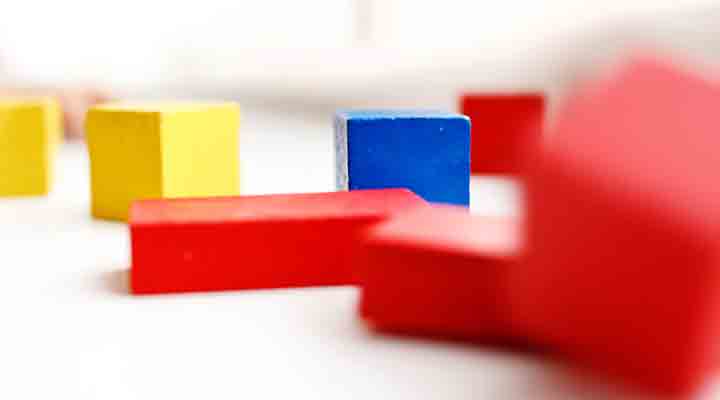“I’m a new parent and have been hearing so much about the Montessori method from friends and online. All of the information is somewhat conflicting, though, and I want to introduce the true principles in my home. What would you say are the cornerstones of Montessori, especially for parents wishing to integrate it in the home?”
Dear Interested in Montessori Parent,
Congratulations! You’ve taken the first step on a lifelong journey to uncover how to support your child in being the best they can be!
We’re not surprised that you’ve heard the buzz about Montessori and are wondering what it’s all about! Italian-born doctor, Maria Montessori (1870-1952), was a scientist who observed how children learn best. She developed a pedagogy, a method of education, that spread and is applied in educational settings and homes around the world. And yet, there continue to be misconceptions of what it’s all about, how to apply the principles, and how to decipher what is aligned with Montessori methodology and what is not.
Trained practitioners of the Montessori Method, teachers that are often called “guides”, undergo a rigorous training equivalent to a Master’s degree in education. This training is unique in that it entails a focus on the underlying principles of optimal learning as well as a vast curriculum developed by both Dr. Montessori as well as her followers. It also involves the holistic transformation of the adult learner to work on their own personal flaws and spark their commitment to lifelong learning. If you’re looking for an authentic Montessori school environment for your child, then we’d highly recommend locating a classroom led by a teacher with a credential from a MACTE (Montessori Accreditation Council for Teacher Education) accredited teacher education program. Additionally, when you’re looking for authentic information, look to experts in Montessori with vast practical experience as well as the credentials that indicate a lineage of authenticity.
Montessori principles and practices are also adopted by families in their homes for many reasons including supporting their child’s independence, their curiosity in learning, and holistic growth. Montessori home environments cannot duplicate a school setting in that they are not guided by a trained practitioner nor do they have the pool of students in a specific range of ages that the methodology leans on to support the young learner. What home environments DO have though, is the ability to amplify each child’s potential by leveraging the unprecedented relationships embedded in the family structure. The home environment is also uniquely poised to prepare an authentic environment to support the child’s independence in all arenas.
Dr. Montessori saw every child holistically. In following her approach, we attend to the child’s social, emotional, physical, cognitive, and spiritual well-being within an environment fully prepared for the child to flourish. She saw our role as being far more a “guide on the side” rather than “sage on the stage” teacher. She identified commonalities in how we develop and learn, regardless of culture, and she even noted sensitivities to learning certain kinds of things at specific times in our development.
A cornerstone of Montessori philosophy is to “follow the child” which seems simple, yet the practice relies on a deep understanding of child development to determine what is an appropriate expectation and how to “hook” the child’s interest based on sensitive periods of development, the ability to prepare an environment based on observations of the child with choices ready for this specific time in the child’s life.
Another cornerstone of Montessori philosophy is the deep respect and trust shown to the child. This is seen in every interaction the adult has with the child, the preparation of a beautiful environment with real things, and how adults envision and trust the child that has not yet emerged.
Some practical ideas for families looking to incorporate Montessori into their homes include slowing down your pace of life and allowing your child time to process information, respecting your child by speaking and listening to them as you would an adult, noticing your tone and word choices. Montessori environments also provide hands-on learning for children; families can amplify this by providing concrete experiences for children by allowing them to make discoveries by themselves, including making the mistakes that inevitably provide learning opportunities.
One of the most important principles that families can amplify at home is to include their child. Young children like to be involved in everything including food preparation, cleaning, shopping, and more. Children take their cues for emotional regulation from the adults in their lives who serve them best by validating charged emotions, empathize, and enforce the limits.
In preparing your home, to promote independence, provide child-sized furniture and tools such as table and chairs, small broom, watering can, etc. Ensure easy accessibility such as low hooks for coat and bag, steps to sink faucets, and low hangers for clothing. For toy control, think minimalism as it increases the child’s interest and is far more manageable. Reduce the offerings, organize them in baskets or trays arranged on low shelving, and rotate every now and then the toys that are underused.
Finally, maybe the most important aspect of bringing Montessori methodology into your home, is to work on being your best self. Children absorb everything around them effortlessly, including who we are as adults. And we teach who we are every moment we’re with children.
For a great resource on raising children, check out Tim Seldin’s Raising an Amazing Child the Montessori Way.
Tammy Oesting spent the last 26 years delivering professional development workshops, consulting schools, and educating new Montessori teachers and has 17 years in Montessori classrooms.Her passions include issues of social justice, educating support staff, life sciences, neuroscience, and exploring the magnificence of the world. She serves Montessori globally through her company ClassrooMechanics. (AMS 3-12)
Help! How do I know how to recognize true Montessori?
